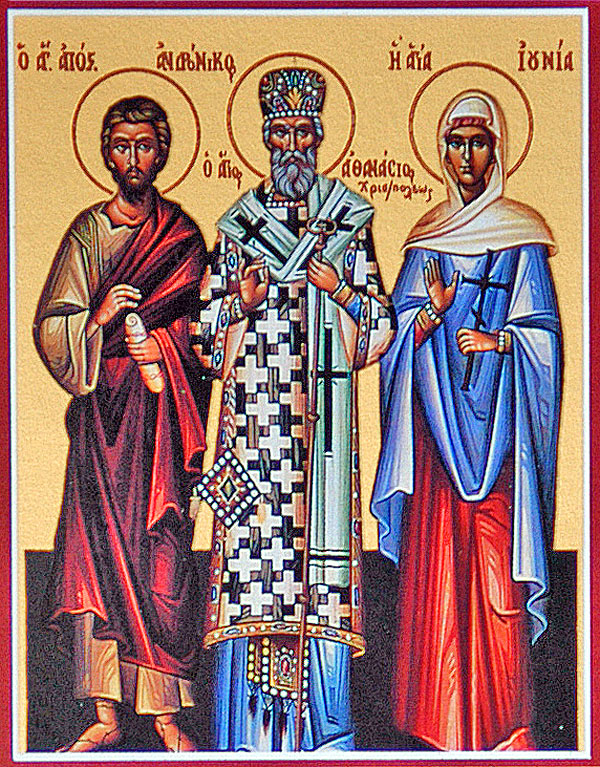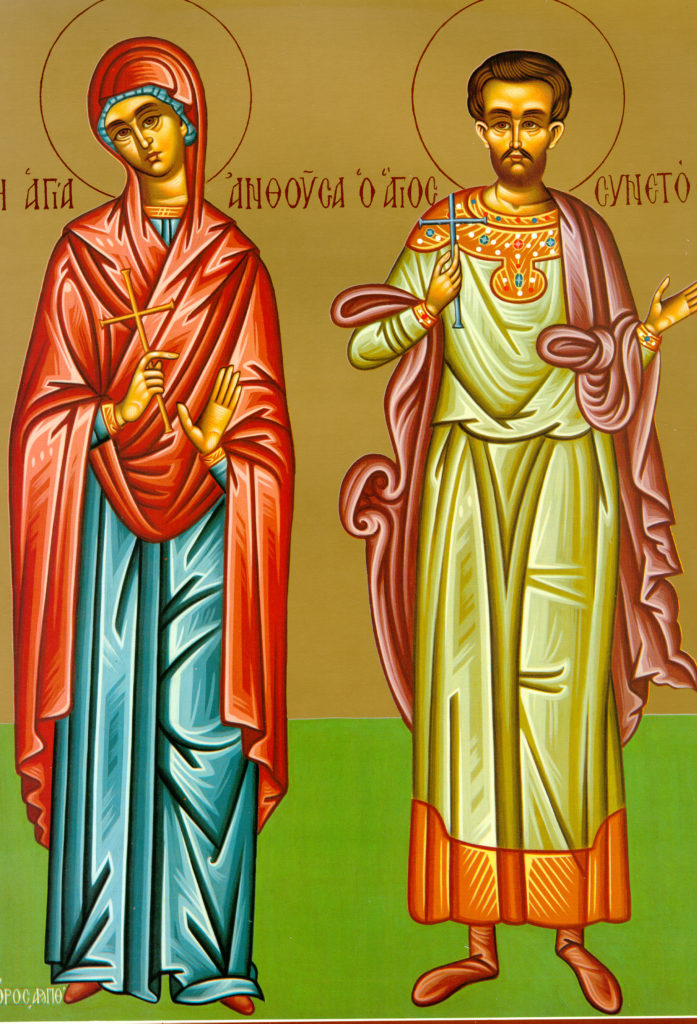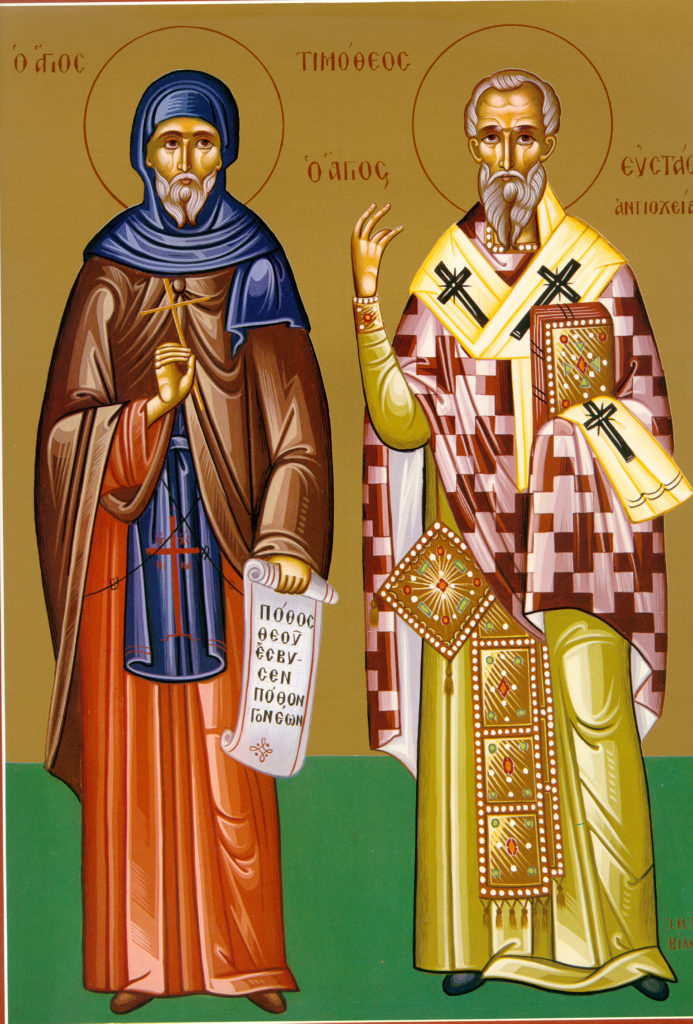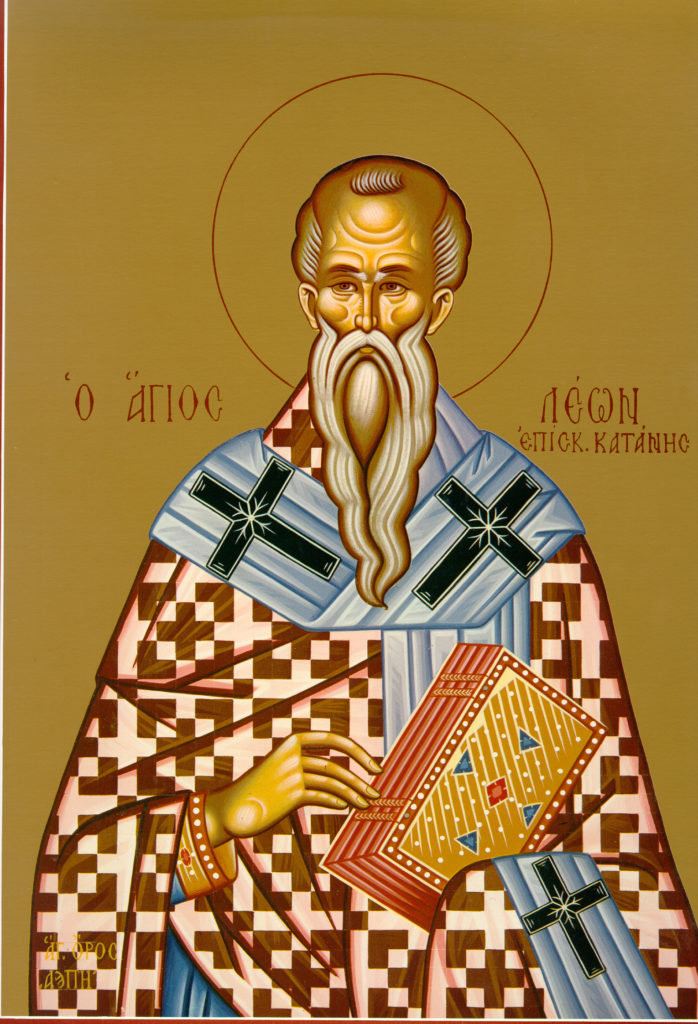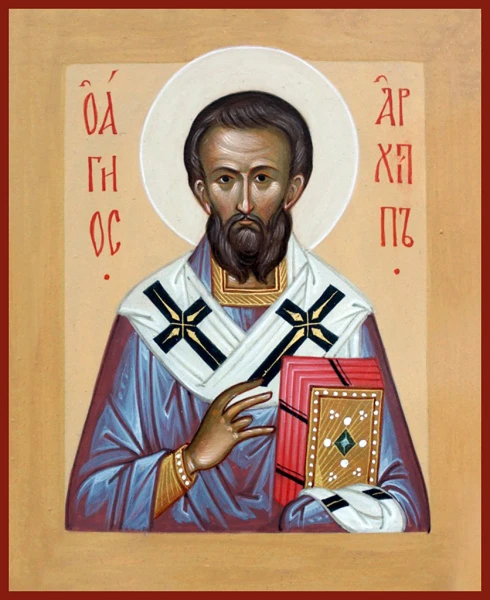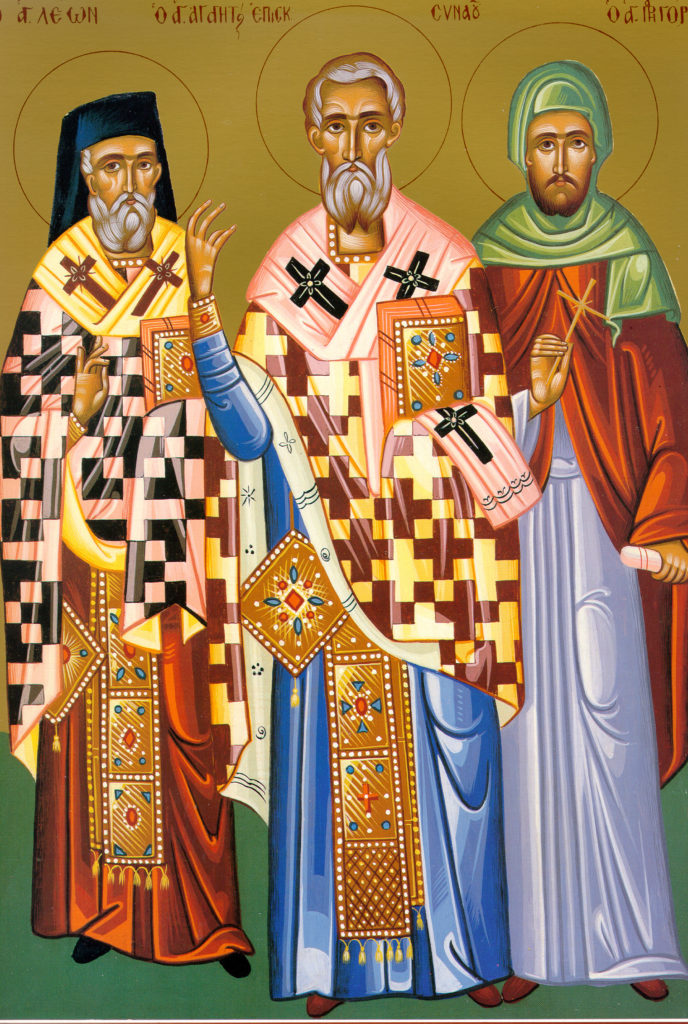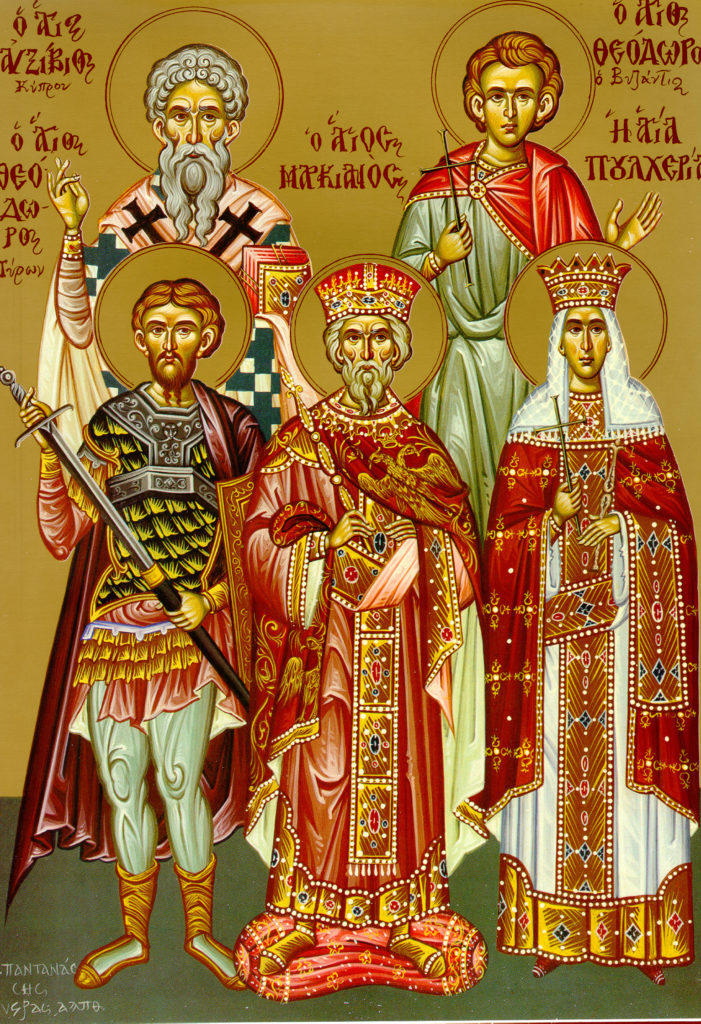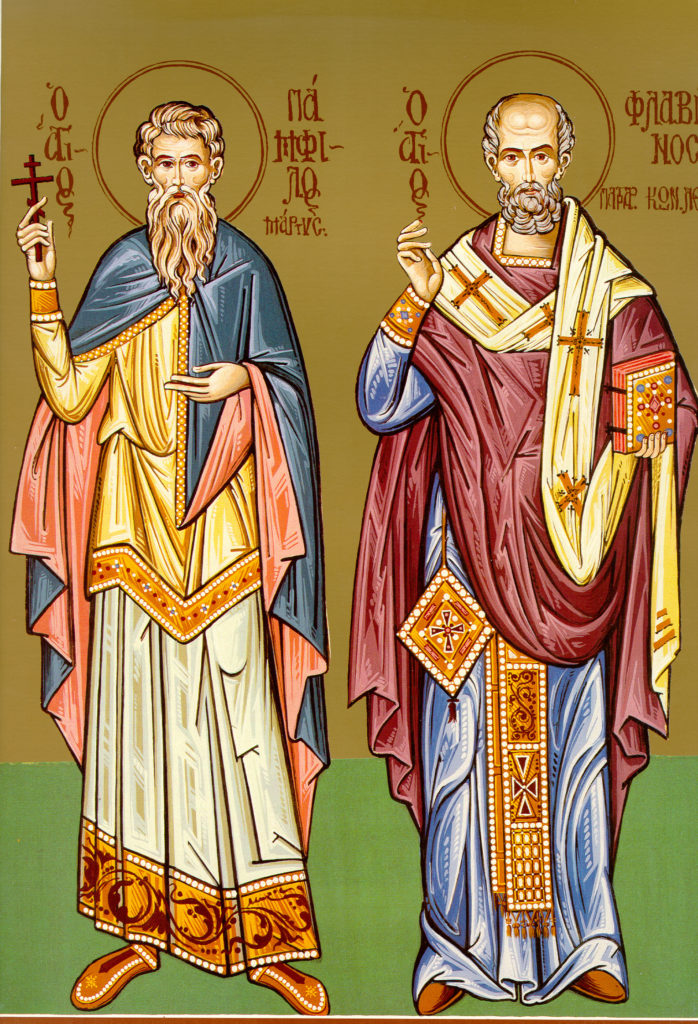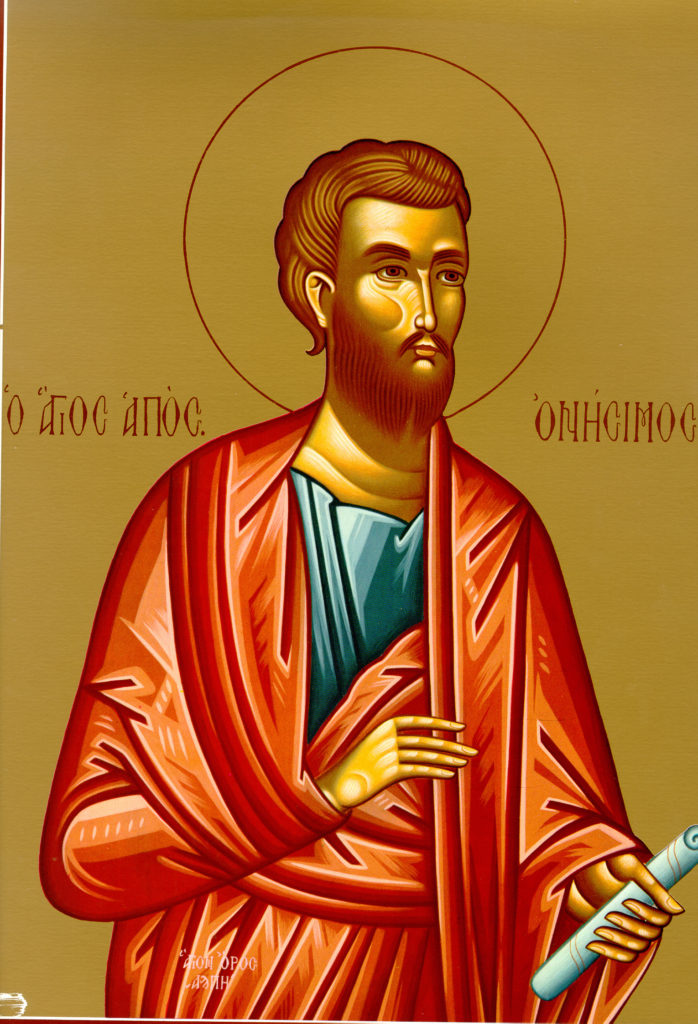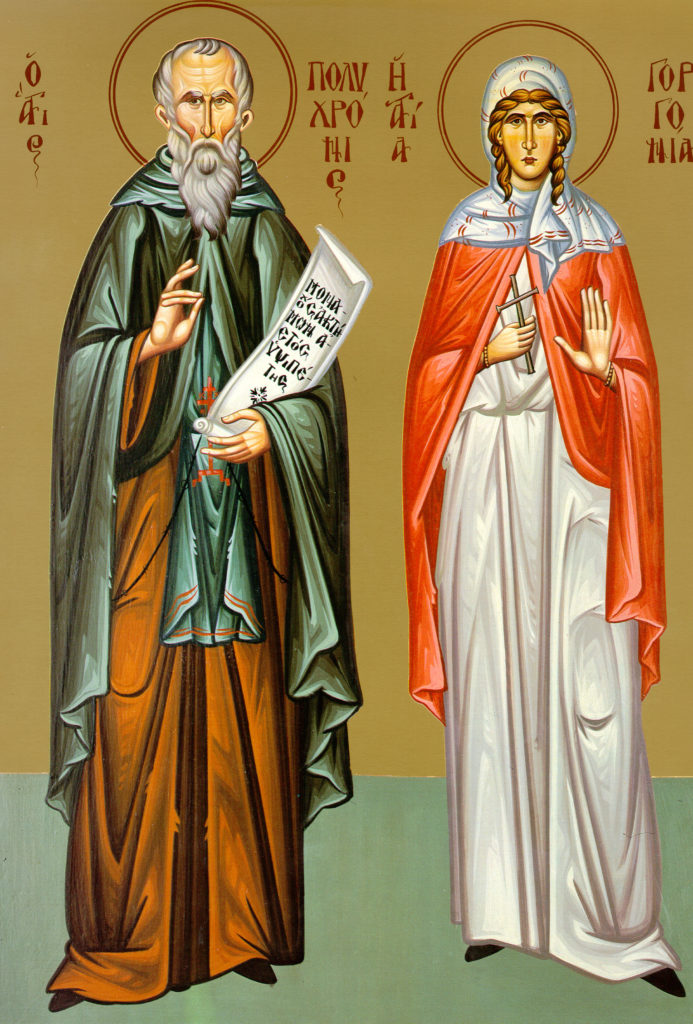

The holy priest martyr Polycarp, Bishop of Smyrna, who was “fruitful in every good work” (Col. 1:10), was born in the first century, and lived in Smyrna in Asia Minor. He was orphaned at an early age, but at the direction of an angel, he was raised by the pious widow Kallista. After the death of his adoptive mother, Polycarp gave away his possessions and began to lead a chaste life, caring for the sick and infirm. He was very fond of and close to St. Bucolus, Bishop of Smyra (who we celebrate Feb. 6). He ordained Polycarp as deacon, entrusting him to preach the Word of God in church. He also ordained him to the holy priesthood. Under the emperors Marcus Antoninus and Lucius Aurelius Commodus, at about the age of 90, St. Polycarp was given over to the flames in the amphitheater at Smyrna. Before the proconsul and the whole people, he gave thanks to God the Father because he had deemed worthy to be numbered among martyrs and to receive a portion from the cup of Christ.
Troparion
O holy priest-martyr Polycarp, you lent yourself to the apostles’ way of life and succeeded them on their throne. Inspired by God, you found the way to contemplation through the practice of virtue. Therefore, you became a perfect teacher of truth, fighting for the faith unto the shedding of your blood. Intercede with Christ our God that He may save our souls.
Kontakion
O wise priest-martyr Polycarp, you offered spiritual fruits to God and became worthy of Him because of your virtues. Therefore, we who have been enlightened by your teachings, honor your memory and glorify the Lord.
Genesis 3:21- 4:7
The Lord God made for the man and his wife garments of skins, with which he clothed them. Then the Lord God said: See! The man has become like one of us, knowing good and evil! Now, what if he also reaches out his hand to take fruit from the tree of life, and eats of it and lives forever? The Lord God therefore banished him from the garden of Eden, to till the ground from which he had been taken. He expelled the man, stationing the cherubim and the fiery revolving sword east of the garden of Eden, to guard the way to the tree of life.
The man had intercourse with his wife Eve, and she conceived and gave birth to Cain, saying, “I have produced a male child with the help of the Lord.” Next she gave birth to his brother Abel. Abel became a herder of flocks, and Cain a tiller of the ground. In the course of time Cain brought an offering to the Lord from the fruit of the ground, while Abel, for his part, brought the patty portion of the firstlings of his flock. The Lord looked with favor on Abel and his offering, but on Cain and his offering he did not look with favor. So Cain was very angry and dejected. Then the Lord said to Cain: Why are you so angry? Why are you dejected? If you act rightly, you will be accepted; but if not, sin lies in wait at the door: its urge is for you, yet you can rule over it.
Proverbs 3:34 – 4:22
Those who scoff, he scoffs at, but the lowly he favors.
The wise will possess glory, but fools will bear shame.
Hear, O children, a father’s instruction, be attentive, that you may gain understanding!
Yes, excellent advice I give you; my teaching do not forsake.
When I was my father’s child, tender, the darling of my mother,
He taught me and said to me: “Let your heart hold fast my words: keep my commands, and live!
Get wisdom, get understanding! Do not forget or turn aside from the words of my mouth.
Do not forsake her, and she will preserve you; love her, and she will safeguard you;
The beginning of wisdom is: get wisdom; whatever else you get, get understanding.
Extol her, and she will exalt you; she will bring you honors if you embrace her;
She will put on your head a graceful diadem; a glorious crown will she bestow on you.”
Hear, my son, and receive my words, and the years of your life shall be many.
On the way of wisdom I direct you, I lead you on straight paths.
When you walk, your step will not be impeded, and should you run, you will not stumble.
Hold fast to instruction, never let it go; keep it, for it is your life.
The path of the wicked do not enter, nor walk in the ways of the evil;
Shun it, do not cross it, turn aside from it, pass on.
For they cannot rest unless they have done evil; if they do not trip anyone they lose sleep.
For they eat the bread of wickedness and drink the wine of violence.
But the path of the just is like shining light, that grows in brilliance till perfect day.
The way of the wicked is like darkness; they do not know on what they stumble.
My son, to my words be attentive, to my sayings incline your ear;
Let them not slip from your sight, keep them within your heart;
For they are life to those who find them, bringing health to one’s whole being.
With all vigilance guard your heart, for in it are the source of life.
Dishonest mouth put away from you, deceitful lips put far from you.
Icon courtesy of Jack Figel, Eastern Christian Publications – ecpubs.com


